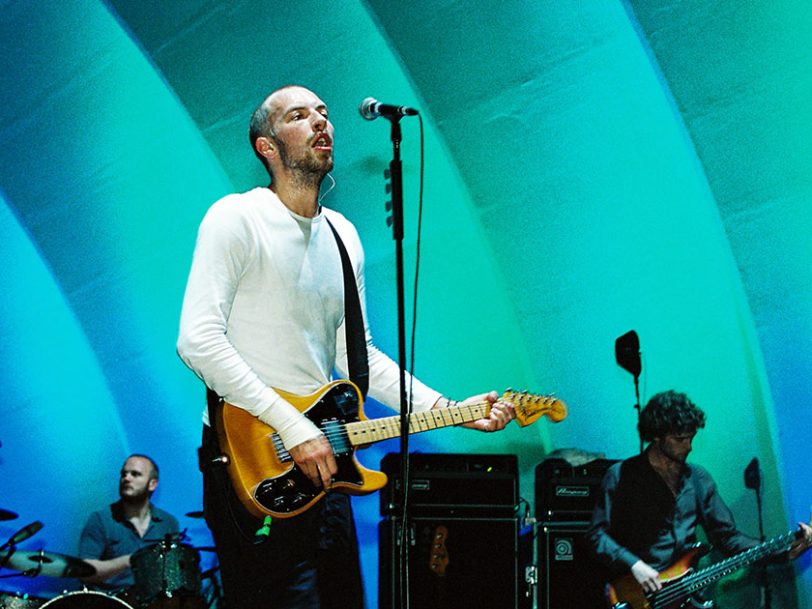With their heads in a whirl following a 12-month tour in support of their debut album, Parachutes, Coldplay immediately set about recording its follow-up in October 2001, just a month after the 9/11 terrorist attacks in New York City. With the public disconsolate and looking for answers, Coldplay frontman Chris Martin was deeply affected as a songwriter – not just by the political anxieties in the air but also by heartbreaks brought on his own recent romantic experiences. In contrast to the lo-fi acoustic vibe of their previous record, the band set out to make their second album bigger and bolder, perhaps knowing they needed a more expansive sound that could fill arenas and compete with the likes of U2. However, due to lingering fears of fatigue and writer’s block, progress on the album was slow but steady, with Chris Martin reportedly writing more than 20 songs for consideration.
Listen to ‘A Rush Of Blood To The Head’ here.
As a songwriter, Martin’s perfectionism was as unrelenting as always, though guitarist Jonny Buckland fondly remembers the recording experience, admitting the possibilities were endless. “We just felt completely inspired, and felt we could do anything we liked,” he said. “We didn’t have to do the acoustic thing, we didn’t have to do a loud rock thing, we didn’t have to react against anything.” Hopping from the Mayfair and AIR Recording Studios, in London, to Parr Street, in Liverpool, the band worked on the record well into June 2002, but, thanks to the stellar involvement of producer Ken Nelson, A Rush Of Blood To The Head eventually took shape as one of the best 2000s albums.
“The name of the album means doing something on impulse”
Due in large part to the widespread success of their breakthrough hit, Yellow, from Parachutes, Coldplay were invited to headline Glastonbury Festival that summer, two months before their new album was released. Remarkably, four years earlier, Chris Martin had predicted this would happen. “By the 26th of June 2002,” he said on a 1998 home video featured in the documentary A Head Full Of Dreams, “Coldplay… will be known all over, man! Guy, Will, Jon and Chris. Don’t you forget – massive! Absolutely huge!” After playing to a crowd of 140,000 festival-goers, it must have felt as if his wildest dreams had come true.
By now, Coldplay were already considered to be one of the best British bands of the era, and they readied the public for the release of their second album by unveiling its lead single, In My Place. The song had started life when Martin playfully threw a melody together on a pump organ and improvised his own sea shanty. With chords inspired by A Whiter Shade Of Pale, by Procol Harum, and music by Jimmy Cliff, the song quickly took on a life of its own thanks to Jonny Buckland’s chiming guitar riff and Will Champion’s thunderous drums. “When Jonny played me the guitar part I thought, Well, we have to record that. It’s the best song we’ve ever written,” Martin later said. Released on 5 August 2002, In My Place peaked at No.2 in the UK and perfectly set the scene for the band’s much-anticipated sophomore record.




